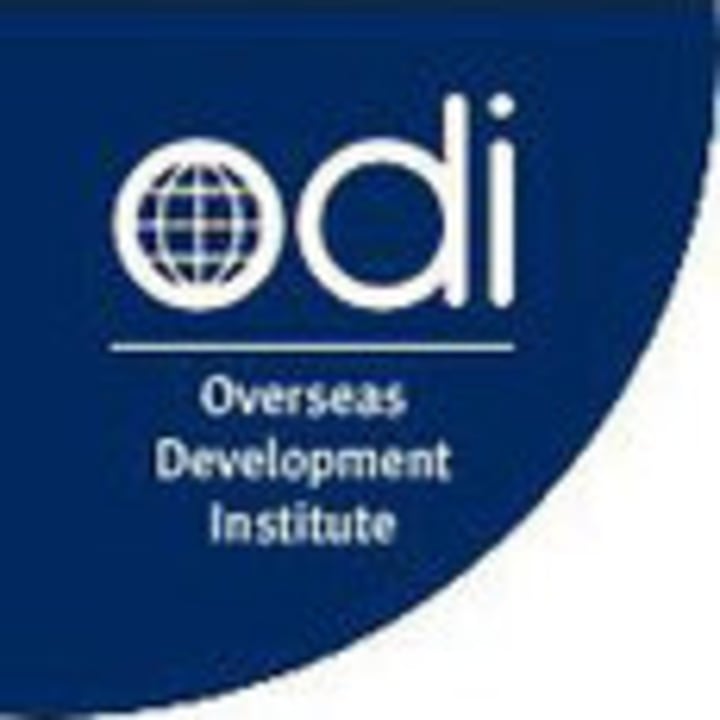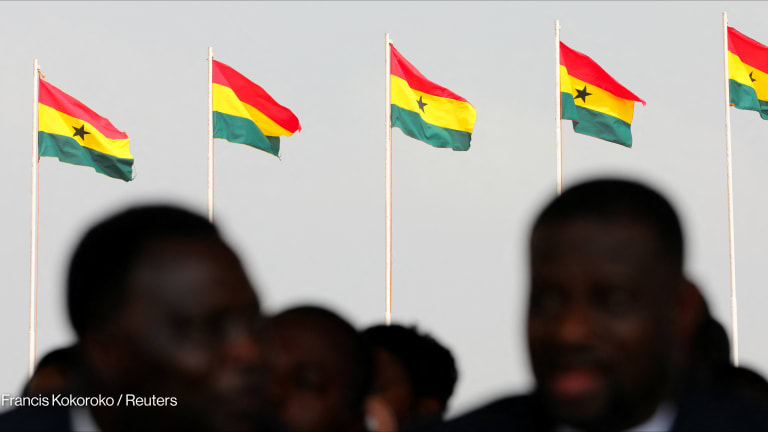
EDITOR’S NOTE: The World Bank’s latest World Development Report recommends major shifts in funding priorities in fragile states, urging an increased focus on supporting effective, legitimate police forces and justice systems, according to Leni Wild, research fellow at the Overseas Development Institute. She notes that the proposal, in many ways, goes beyond the bank’s current mandate.
The World Bank’s latest World Development Report (WDR) presents some sobering realities for the relationship between conflict and underdevelopment in the world today. It estimates that 1.5 billion people live in countries affected by repeated cycles of violence and conflict, and that no low-income fragile country has yet to achieve a single Millennium Development Goal. Changing patterns of conflict and violence now characterise the lives of many in the poorest countries; while deaths from civil war have fallen to one-quarter of what they were in the 1980s, one in four people still live in conflict affected countries with very high levels of criminal and political violence.
The WDR offers important new perspectives for how to make progress in supporting transitions out of fragility:
The WDR stresses the importance of ‘getting the basics rights’ – that citizens’ security, justice and access to jobs should be key priorities for achieving greater stability.
The Report underpins this with a recognition that institutional transformation sits at the heart of successful transitions out of fragility. It stresses the role of legitimate institutions in providing the ‘immune system’ against external and internal shocks, something emphasised by recent reviews of the impact of the financial crisis. Helpfully, notions of legitimacy are linked to concepts of social cohesion and social capital, rather than narrow normative commitments to Western democratic models, and the report takes care to emphasise ‘best fit’ over ‘best practice’ models for institutional change.
Linking to institutional transformations, it emphasises the need for much longer timeframes for engagement in fragile states, and draws on an impressive historical analysis of transitions out of fragility for a wide range of countries.
The Report turns the spotlight back on the international community. It highlights the importance of addressing external stresses, such as the infiltration of organised crime and trafficking networks or spill-overs from neighbouring conflicts. And it explicitly recognises tensions between the need for smarter, longer-term engagement to address fragility, and international actors’ sensitivities to domestic criticism on the grounds of waste, corruption or a lack of results. This is termed the ‘dual accountabilities’ between countries’ own taxpayers and partner countries, and it is rightly identified as a key factor behind the lack of progress in changing the approaches of international actors in fragile contexts. Madeleine Bunting recently commented on these tensions in the UK context too.
While these dimensions provide important contributions to this debate, I would have liked to see more thinking about the operational implications of some of this analysis. Two key issues seem to stand out.
Firstly, the WDR helpfully nuances its discussion on legitimacy with reference to moving away from blueprints and towards ‘best fit’, but it skirts around the state-society relations that underpin legitimacy. Instead, it falls back on some of the language of good governance and conventional supply versus demand approaches to accountability. This misses the current state of thinking on these issues, which emphasises moving beyond supply/demand dichotomies and the need to work much more effectively with a range of formal and informal institutions (with the latter often key providers of security and justice in many fragile states). This is challenging for donors (bilateral and multilateral) and greater guidance is needed for how to proceed.
Secondly, the report makes a useful attempt to bring in a wider audience – diplomatic and security actors as well as emerging donors and the private sector all get a mention – but it does not substantively engage with what it would take to ensure greater coherence and cooperation within and across the international community. Reviews of Whole-of-Government approaches, for instance, highlight that greater cooperation requires significant political will and strong mechanisms for mediating between competing priorities. Lessons may be learnt from this for attempts to build deeper cooperation but the WDR is generally silent on how this might be substantively realised.
What the WDR makes clear is that this is not business as usual and that new approaches are needed to effectively engage with fragile states. While this is not new to a number of bilateral donors (including the UK, which is scaling up its commitments to these countries), it is interesting that the World Bank has gone so far in analysing some of the political dynamics, tensions and challenges that sit at the heart of addressing conflict and fragility.
The Report is effectively calling for major shifts in the type of things that are funded in fragile states, with a lot more emphasis on effective, legitimate police forces and justice systems. In many ways this goes well beyond the current mandate of the World Bank, and these are not areas where it has a strong track record. But the Report is clear that multilaterals should engage more in some areas that have traditionally been outside their span of action. While I applaud this shift towards taking politics more seriously, we should not underestimate the challenges it will pose for operational staff, both within the World Bank and beyond.
Re-published with permission by the Overseas Development Institute. Visit the original article.




